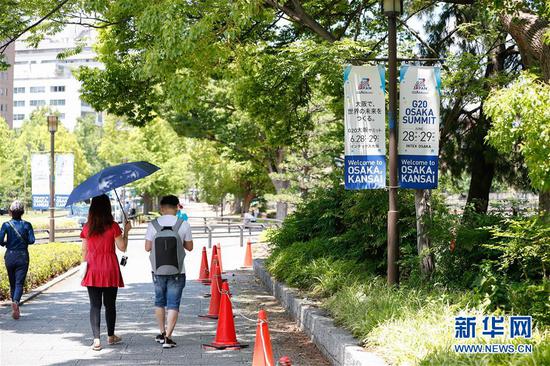
A photograph widely circulating online depicting a father and daughter drowned face-down in the Rio Grande River near Brownsville, Texas, the United States, has once again trained public attention to the plight of migrants. (Xinhua)
The U.S. House of Representatives on Thursday passed the Senate's version of the emergency border funding bill after House Speaker Nancy Pelosi reversed course amid pressure from moderate Democrats to tackle the migrant surge along the U.S.-Mexico border immediately.
The Democrat-controlled House voted 305 to 102. Senate Majority Leader Mitch McConnell said President Donald Trump supports the Senate bill.
"In order to get resources to the children fastest, we will reluctantly pass the Senate bill," Pelosi wrote in a statement before the Thursday voting.
"The children come first," Pelosi said. "At the end of the day, we have to make sure that the resources needed to protect the children are available."
The sudden setback for Pelosi came amid heavy pressure from moderate Democratic lawmakers who are seen as most vulnerable at the 2020 U.S. general elections, local analysts said.
House Representative Josh Gottheimer, a Democratic leader of the bipartisan Problem Solvers Caucus, told Pelosi Thursday morning that he had rallied enough moderate Democrats to take down the rule on the amended House bill.
Recent media reports of horrific conditions facing children at border detention centers and the release of a photograph depicting a father and daughter drowned face-down in the Rio Grande River near Brownsville, Texas, also created new urgency for Congress to act before the July 4 recess.
The Senate passed the 4.6-billion-U.S.-dollar border funding bill on Wednesday, one day after the House of Representatives approved a markedly different version.
The Senate's version includes nearly 3 billion dollars in humanitarian aid and calls for earmarking 145 million dollars for the Pentagon to aid border control that many liberal Democrats oppose. Democratic lawmakers also seek to set up protocols for the care of children, improve standards of care centers and provide translation services, provisions not in the Senate version.


















































